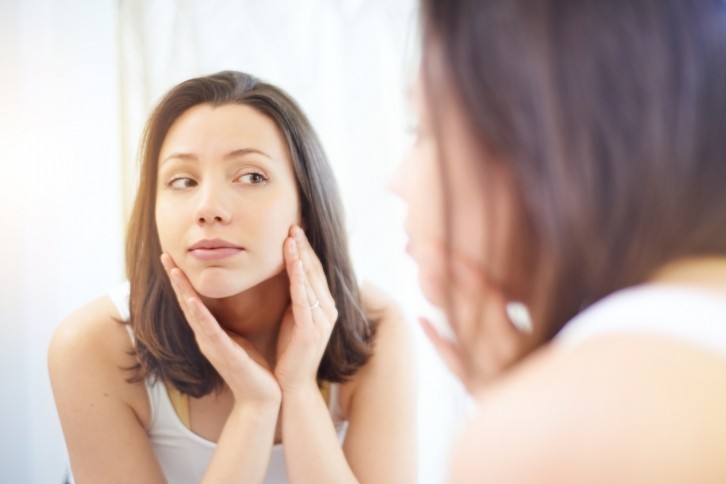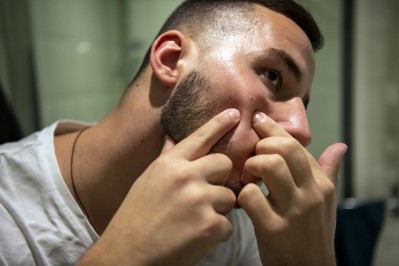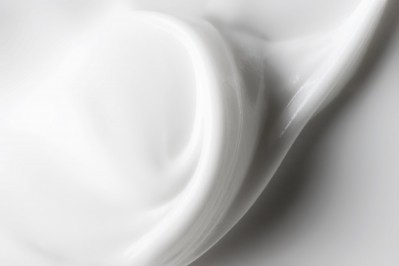Multiple studies support efficacy of cold-pressed black cumin seed oil for topical applications

Cosmetic and personal beauty care ingredient manufacturer TriNutra has produced a cold-pressed black cumin seed oil ingredient, B’utyQuin, which has been shown in a recent clinical trial to have the potential to improve and protect skin and scalp health. The ingredient is “a cold-pressed black seed oil (BSO) standardized to 3% thymoquinone, the key phytonutrient, with low free fatty acids (<2%) to maintain its purity, quality, and stability,” described Dr. Liki von-Oppen Bezalel, Business Development Director at TriNutra.
As detailed on the TriNutra website, the potential benefits of B’utyQuin are numerous and include “boosting mitochondrial functions that slowdown with age, optimizing and improving cell respiration and energy production, improving metabolism resulting in more water molecules formation and barrier restoration, and improving the action of antioxidant enzymes and scavenge free radicals.”
About the ingredient, Dr. von-Oppen Bezalel shared that “B’utyQuin has been shown in in vitro and clinically to possess antimicrobial, antioxidant, anti-inflammatory and mitochondrial functionality improvement properties to improve and protect skin and scalp health.”
To learn more about B’utyQuin, including the research and studies into its efficacy as a cosmetic ingredient, CosmeticsDesign spoke to Dr. von-Oppen Bezalel for her insights.
Microbiome support studies
To establish B’utyQuin’s efficacy in supporting “the maintenance of a healthy skin and gut microbiome via anti-bacterial and antifungal activity against pathogens,” said Dr. von-Oppen Bezalel, an in-vitro study was conducted which “investigated four black seed oil products from different origins with varying levels of thymoquinone and free fatty acid content.” As detailed in the study, “efforts to find alternatives to antibiotics for the treatment of various pathological conditions are constantly ongoing,” and “the development of antibiotic resistant microbial strains makes the efforts even more challenging.”
Therefore, the study continued, “the ability to strongly inhibit the growth of key microorganisms responsible for the most common skin infections suggests an important role for cold-pressed N. sativa oil as an alternative and safe antimicrobial agent that is also able to assist in balancing skin and gut microbiome for health and wellness support.”
Various assays were conducted, and the study concluded that of the four products tested, “B’utyQuin was superior in its ability to inhibit the overgrowth of Malassezia furfur, Candida albicans and Staphylococcus aureus,” said Dr. von-Oppen Bezalel.
“In two other, separate studies,” Dr. von-Oppen Bezalel continued, “comparing B’utyQuin (the standardized BSO) to non-standardized BSO, B’utyQuin was clearly superior at inhibiting the growth of Propionibacterium acnes while the non-standardized BSO did not.” She further explained that “some of these microbes are commonly found in healthy skin and gut microbiota but can also be infection-inducing microorganisms if overgrowth happens, and can also disrupt the homeostasis of the microbiome.”
The analysis in these studies, she summarized, showed that “the composition and ratios of thymoquinone and free fatty acids plays a major role in the BSOs bioactivity, and therefore, B’utyQuin was found to be a safe antimicrobial alternative agent, and perhaps even a preventative and protective care against acne outbreaks and for maintenance of healthy microbiome balance and diversity.”
Clinical trial investigating anti-inflammatory benefits
An additional published human clinical trial “furthered the investigation of B’utyQuin as a potent anti-inflammatory, antioxidant, and antimicrobial for cosmetic and dermatologic use by testing its efficacy, safety and compatibility as a topical active ingredient,” said Dr. von-Oppel Bezalel. In the study, she explained, “B’utyQuin’s effects on the microorganisms Malassezia furfur, Candida albicans and Staphylococcus aureus, which are often associated with irritated, itchy, scaly skin and scalp and seborrheic dermatitis were studied on humans with mild to moderate seborrheic dermatitis.”
As detailed in the study, “this blinded, controlled clinical trial demonstrated topical application of Scalp Serum resulted in significant improvements in scalp irritation, erythema, itchiness, scaling, and overall health of the scalp as compared to baseline.” Shared Dr. von-Oppel Bezalel, “the results showed that the topical application of a 5% B’utyQuin scalp serum used for 28 days had significant improvements in the participants scalp oiliness, irritation, and itchiness.” The study authors concluded that “it may represent a safe and effective alternative to conventional antimicrobial preparations currently in use for seborrheic dermatitis, skin and scalp discomforts and disorders.”
Clinical trial studying anti-aging benefits
A published placebo-controlled clinical trial was also conducted to investigate the “modulation of mitochondrial biogenesis, ATP production, oil droplet size, and energy expenditure in fat cells, [which are] are also thought to play a role in BSO’s effect on symptoms of acne and seborrhea of the skin and scalp,” said Dr. von-Oppel Bezalel.
To determine the ingredient’s efficacy regarding its potential anti-aging benefits, “B’utyQuin was studied in-vitro to determine mechanisms related to mitochondrial biogenesis and revitalization,” which was “followed by clinical research to establish the safety, compatibility, and efficacy of 3% B’utyQuin as a topical anti-aging cosmetic aid for human skin,” she explained.
The twenty-eight-day trial was conducted with twenty-two healthy male and female subjects between the ages of thirty-five and sixty-five with all types of skin who applied a B’utyQuin cream to half of their face and a placebo on the other half throughout the studied period, after which efficacy was assessed using “a variety of standard dermatological examination techniques and equipment,” the study detailed.
The study determined that “B’utyQuin as a topical application yielded statistically significant and visible improvements over 28 days in skin hydration, luminosity, firmness, and elasticity, when compared to a placebo cream, resulting in a more flawless appearance,” said Dr. von-Oppel Bezalel.
Therefore, she concluded, “these results support the mechanisms related to the mitochondrial biogenesis and revitalization effects observed in vitro for BSO as well as its antioxidant and anti-inflammatory benefits.”
While there is still more to be learned about cold-pressed black cumin seed oil, the results of this research strongly indicate the potential for the ingredient’s efficacy as a cosmetic ingredient for various skin and hair care product formulations.
















